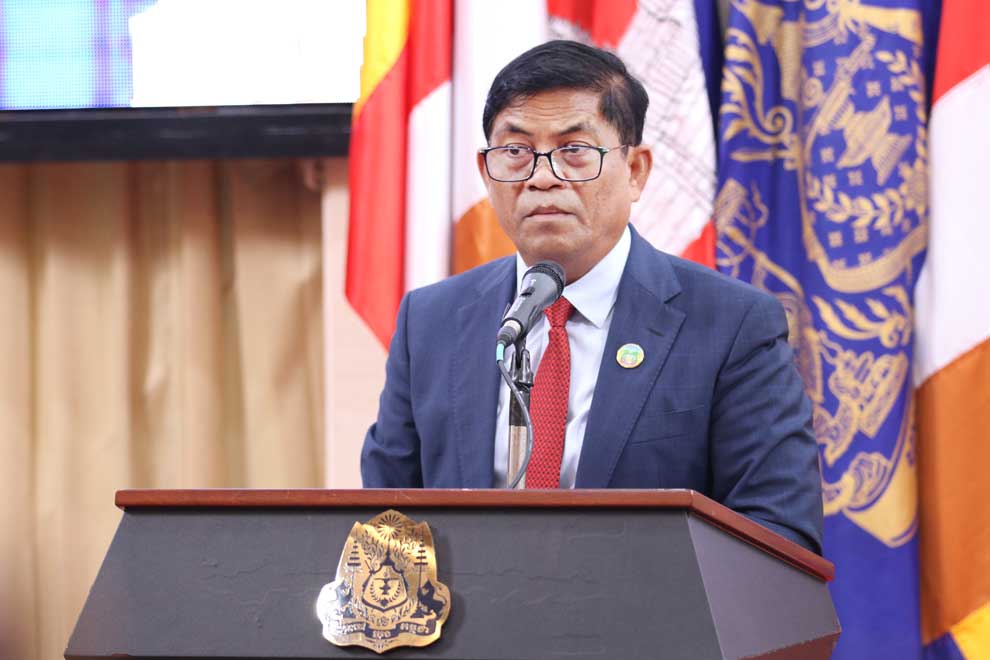
Ratanakkiri governor Nhem Sam Oeun during the conference on his provincial administration’s achievements. RGSU
Ratanakkiri provincial governor Nhem Sam Oeun is pushing the preservation of minority cultures as an important method of attracting tourists.
While addressing a press conference on the provincial administration’s achievements of the past five years, held at the Council of Ministers on April 4, Sam Oeun said he is seeking investment in their promotion and preservation.
“If we can preserve the traditions and cultures, including art, clothing and food, we can promote them to the world. This in turn will create many job opportunities for members of our minority ethnic communities,” he explained.
“To those who are considering visiting Ratanakkiri, I would like you to know that it is unique among the Kingdom’s provinces. We have our own distinct minority ethnic communities, animals and forests. Our lakes and waterfalls are also spectacular,” he added.
He said his administration is also working to improve the province’s tourism infrastructure.
“In order to attract tourists, the authorities and the public are working together. We are replanting trees to beautify the environment and effective waste management is a priority. Every Friday evening, provincial officials clean the streets around their unit, as a sign of their commitment to the cleanliness and hygiene of the province,” he said.
Provincial tourism department director Nget Pitou said Ratanakkiri requires more investment in the sector, noting that many of the tourist attractions are currently managed by minority ethnic communities whose resources remain limited and yet to meet growing demands.
He said the province has huge potential for expansion in its tourism sector, but has only developed a limited number of potential attractions, including lakes, waterfall, national parks and minority ethnic communities.
“Slightly more than 500 people are employed in the tourism industry in the province – just over 200 of them are from the minority ethnic communities. With more investment, we can create more jobs,” he said.
“Previously, nearly all of our minority ethnic people were illiterate, but now educational opportunities have been made available to all. In fact, the tourism department offers several short courses to the members of local communities. We have run 28 in all,” he said.











